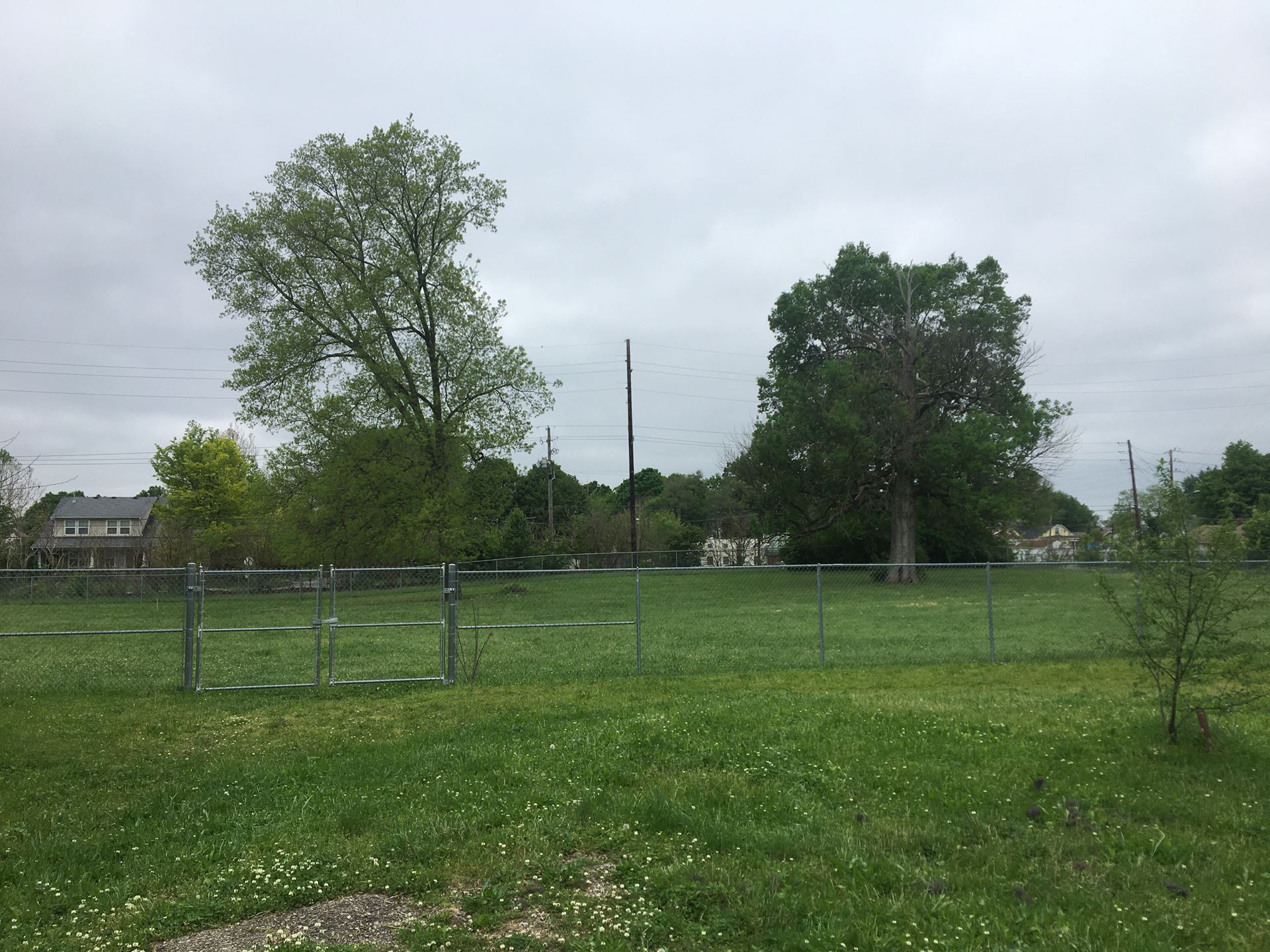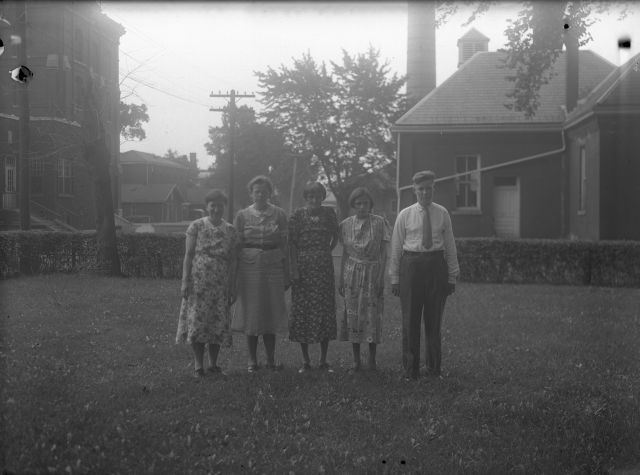by Hannah Smith, IMHM Graduate Intern

Image: Section I of Central State Hospital's Cemetery, 2020
Around noon on November 21, 1848, Rev. Dr. Dowling asked a crowd of two thousand people in Long Island, New York, “Who would not prefer, rather than the crowded city burial place, to fix upon some spot amidst the solitudes of this Cypress Grove?” The people gathered for the new Cypress Hills cemetery’s dedication ceremony, which concluded with the voices of the American Musical Institute’s choir as benediction. Cypress Hills was one of the nation’s first rural, or garden, cemeteries.
In the 19th century, as the amount of space in church graveyards significantly decreased, city planners built rural cemeteries based on the idea of romantic art and sentimentalism. This came to be known as the Rural Cemetery Movement. A decade and a half before the establishment of Cypress Hills, the Massachusetts Horticultural Society laid plans for the opening of Mount Auburn Cemetery, the first garden cemetery in the U.S., just outside of Boston. At a meeting in September of 1832, the Horticultural Society declared that they wanted in a burial ground “whatever there was in nature which could give satisfaction to the mind,” “everything in the arts which could gratify a refined taste” and “lessons of the most exalted philosophy … and of the soundest morals.” Not only did rural cemeteries offer a solution to the need for more burial space, they also allowed for the “opportunity to experiment with landscaping” before the establishment of public parks. Planners like the Massachusetts Horticultural Society could channel Victorian and Romantic ideas into the art of landscaping through the creation of rural cemeteries.
Communities benefited the most from the creation of rural cemeteries. Cemeteries like Mount Auburn and Cypress Hills, “nestled among the smiling landscapes and beautiful gardens” on the outskirts of cities appealed to visitors’ “sense of beauty.” In the garden cemetery, people could take walks or carriage rides and have picnics – it was a public place for anyone to enjoy the scenery. The cemetery parks not only allowed people a space to enjoy nature, but a more sentimental place to mourn the dead. Before the advent of the rural cemetery, people generally avoided the “old-style graveyards” and thus often “neglected or ignored” the “remains of the deceased.” Turning cemeteries into beautifully landscaped parks allowed people to spend time memorializing their loved ones, creating a relationship between the living and the dead.
As the Indiana Medical History Museum (IMHM) works to identify the lost dead in Section I of Central State Hospital’s cemetery, we keep this notion in mind. Museum Director Sarah Halter said this about the IMHM’s cemetery project:
We have always told the story of Central State Hospital and its role in the State, the development of psychiatry, the technology of the Old Pathology Building, and the research done there. But in recent years, we have worked hard to recognize the patients themselves and their experiences at the hospital with programs and exhibits that include their perspectives. Last year, we unveiled a new interpretation of the specimens in our anatomical collection to rehumanize them and give them back their identity and their voice.
There is another group of long-forgotten patients whose humanity and significance we need to acknowledge – those buried unmarked plots in the oldest section of the hospital’s cemetery.
We want to properly memorialize the patients buried there by marking each grave, but we also want to create a beautiful green space where the Indianapolis community can feel a sense of beauty and reflect on the lives of the people buried there, as well as those of living people affected by mental illness.
.jpg)

Images: Central State Hospital patient choir (left); Group of patients on the grounds (right)
Bibliography
Dearborn, H.A.S. “Horticultural: Massachusetts Horticultural Society.” The New England Farmer, and Horticultural Register (1822-1890) 11, no. 9 (September 1832): 65-69.
Doerner, Paige. “Romanticism and Ruralism: Changing Nineteenth Century American Perceptions of the Natural World.” The Spectrum: A Scholarly Day Journal 3, no. 2 (January 2015).
“Dr. Dowling’s Address: At the Dedication of the Cypress Grove Cemetery.” Christian Advocate and Journal (1833-1865) 23, no. 50 (December 1848): 1-200.
Giguere, Joy M. “Localism and Nationalism in the City of the Dead: The Rural Cemetery Movement in the Antebellum South.” Journal of Southern History 84, no. 4 (November 2018): 845-882.
“Mount Auburn Cemetery.” Zion’s Herald and Wesleyan Journal (1842-1863) 34, no. 51 (December 1863): 1.
Quakenbos, George Payn, ed. “City Chronicle: For the week ending November 28th, 1848.” The Literary American 1, A.J. Townsend, publisher (December 1848): 1-496.
Williams, Tate. “In the Garden Cemetery: The Revival of America’s First Urban Parks.” American Forests (Spring/Summer 2014). Accessed 18 March 2020, americanforests.org/magazine/article/in-the-garden-cemetery-the-revival-of-americas-first-ubran-parks/.